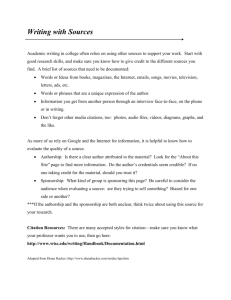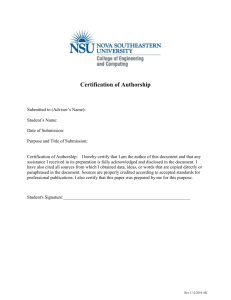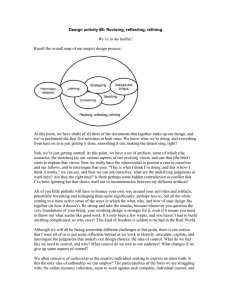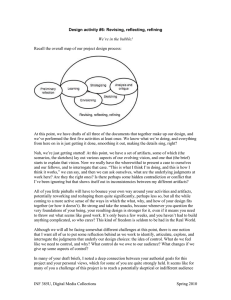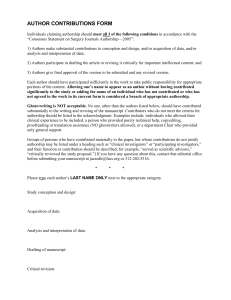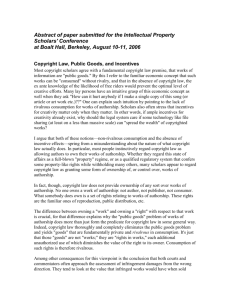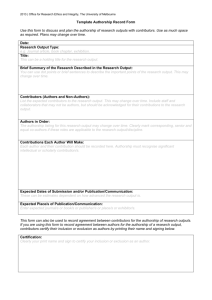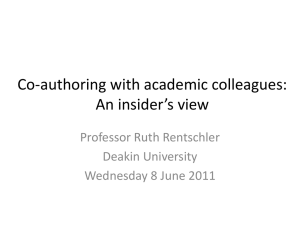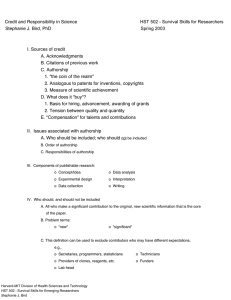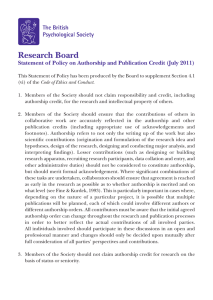The Folklore and Symbolism of Authorship in American Copyright Law
advertisement
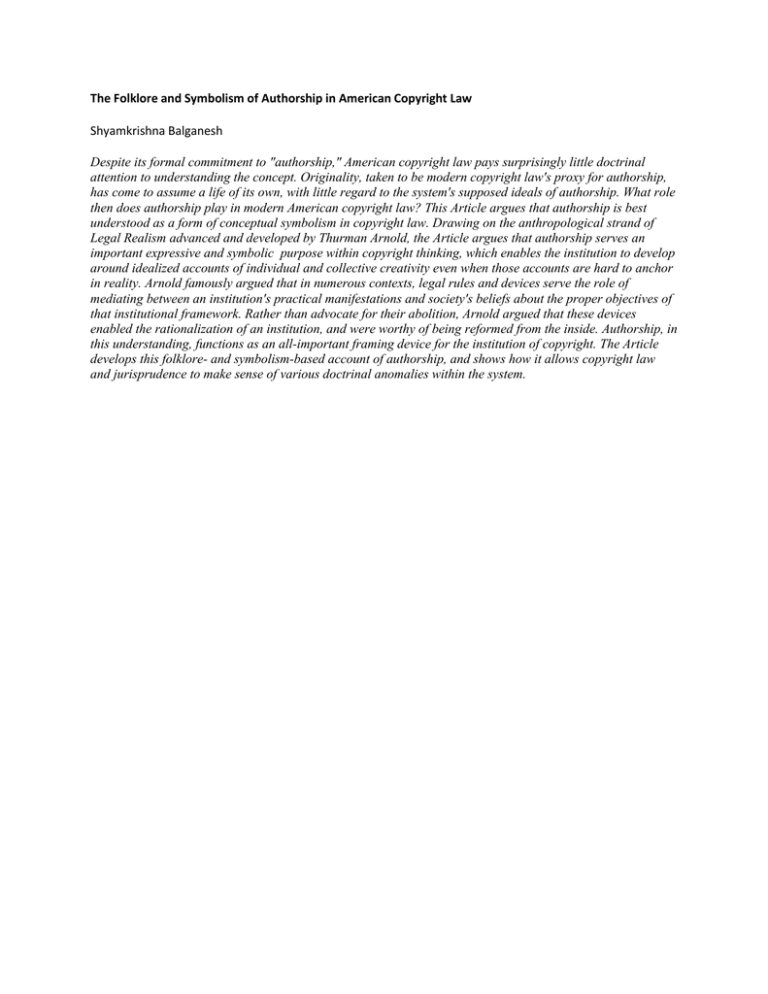
The Folklore and Symbolism of Authorship in American Copyright Law Shyamkrishna Balganesh Despite its formal commitment to "authorship," American copyright law pays surprisingly little doctrinal attention to understanding the concept. Originality, taken to be modern copyright law's proxy for authorship, has come to assume a life of its own, with little regard to the system's supposed ideals of authorship. What role then does authorship play in modern American copyright law? This Article argues that authorship is best understood as a form of conceptual symbolism in copyright law. Drawing on the anthropological strand of Legal Realism advanced and developed by Thurman Arnold, the Article argues that authorship serves an important expressive and symbolic purpose within copyright thinking, which enables the institution to develop around idealized accounts of individual and collective creativity even when those accounts are hard to anchor in reality. Arnold famously argued that in numerous contexts, legal rules and devices serve the role of mediating between an institution's practical manifestations and society's beliefs about the proper objectives of that institutional framework. Rather than advocate for their abolition, Arnold argued that these devices enabled the rationalization of an institution, and were worthy of being reformed from the inside. Authorship, in this understanding, functions as an all-important framing device for the institution of copyright. The Article develops this folklore- and symbolism-based account of authorship, and shows how it allows copyright law and jurisprudence to make sense of various doctrinal anomalies within the system.
